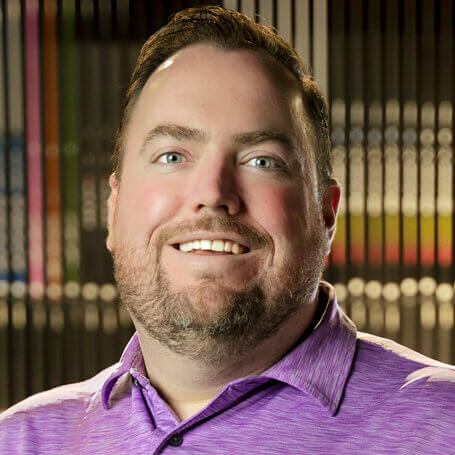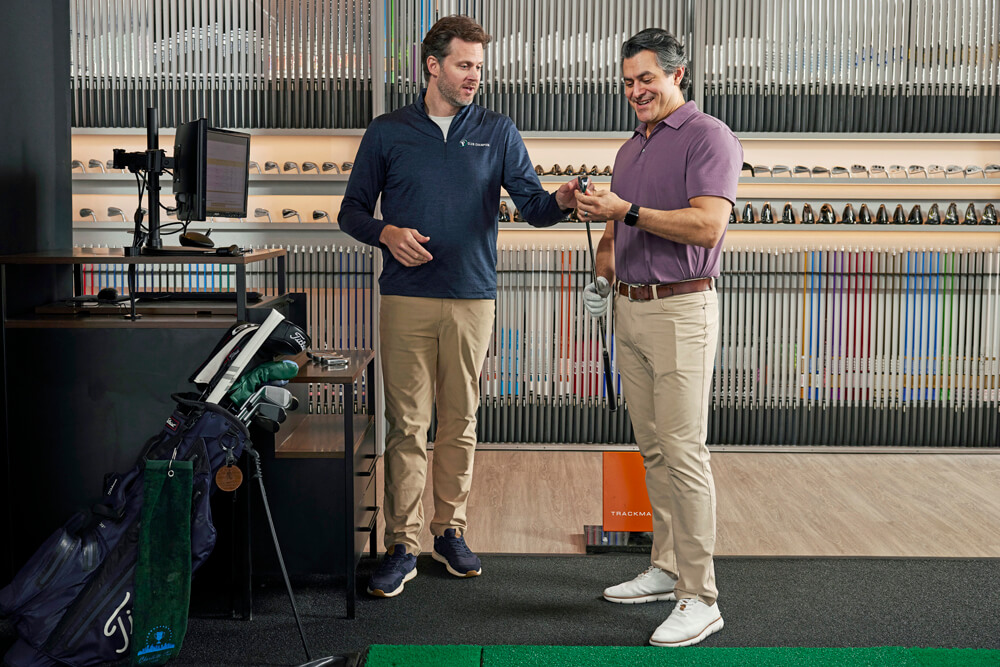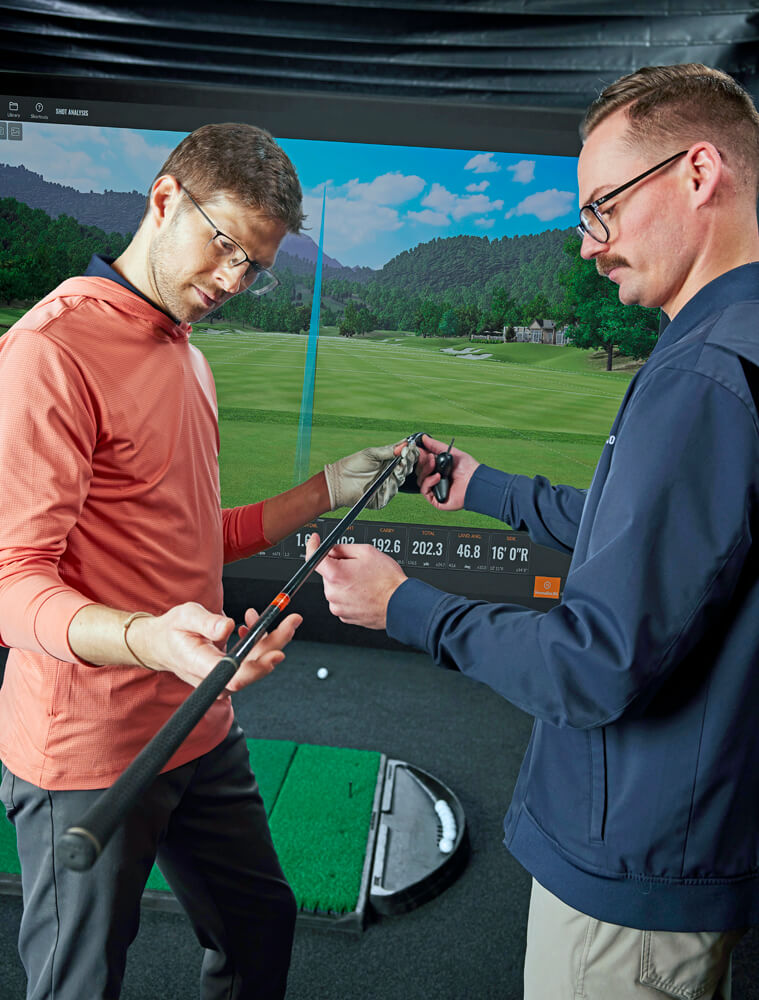WILLOWBROOK, ILLINOIS | Nick Sherburne was a young teen when he started playing golf. His home course was a historic nine-holer in the town of Downers Grove that is best known as the site of the original Chicago Golf Club, which Charles Blair Macdonald, the father of golf in America, founded in 1892. And the youngster fell hard for the game.
 Nick Sherburne
Nick Sherburne
When Sherburne turned 16 and could legally drive a car, he expanded his golf horizons by taking a job at Cog Hill, a 72-hole public golf facility some 15 miles to the south that hosted the Western Open on its Dubsdread Course, also known as No. 4, for 16 straight years starting in 1991.
“I was there from 1998-2000,” recalled the now 42-year-old Sherburne. “I worked the range and bag drop and I got to play golf for free on courses 1 and 3.”
He also helped out with the Western Open, and Sherburne remembers watching the tour vans for the major golf equipment manufacturers driving onto the facility so they could tweak the woods, irons and wedges of the PGA Tour players who were competing.
“I asked my boss, head golf professional Jeff Rimsnider, about those vans and wondered why Cog Hill did not do the same sort of thing for our players,” he said. “Jeff told me that most of them either did not have the time or money to spend on a club fitting or did not appreciate how much one might help their games.”
Soon after, Sherburne purchased his first new set of golf clubs. “They were Titleists, and I paid half with my own money and borrowed the rest from my grandmother, who made me pay her back with interest,” he said. “Then, Jeff fit me for them.”
Thus was born a fascination with golf clubs and the fitting process. And it led Sherburne down a path that soon had him working for a local club-fitting outfit called EJL Custom Golf that by 2009 he’d come to own in full. A year later, when he was only 27, he co-founded a new enterprise that has since become the pre-eminent club fitter in the game.

Its name is Club Champion, and it was born from the idea that proper fittings are just as valuable to recreational golfers as they are for tour professionals and elite amateurs. Sherburne also believed that the advent of launch monitors and new technologies in shafts, grips and clubheads presented a great opportunity for a process that had become less about art and mostly about science and technique. That is what led him and his partners, Joe Lee and Keith Bank, to step into that realm, raising $3.5 million and developing a business plan that looked to open as many as 30 fitting studios across the country.
To say that Club Champion, whose tagline is “Better Fit … Lower Scores,” has exceeded its expectations would be an understatement. And it has done to the independent club-fitting space what Topgolf has accomplished in the realm of off-course golf entertainment. Which is to dominate.
Consider that in the past 15 years, Club Champion has amassed a network of 137 studios in the U.S. and another 11 in Canada, England, Scotland and Australia. They average 2,500 square feet in size, and each one has access to some 60 golf brands and offers more than 65,000 hittable head-and-shaft combinations.
Most have two bays, though some have more, such as the flagship space in Willowbrook, which has five. The studios generally feature two fitters, but the company will add a third if sales in a location surpass $1.5 million annually. Its closest competitor, True Spec Golf, has 40 studios.
Club Champion’s devotion to employing the most advanced technologies in its fittings also stands out. Among other things, that has meant using artificial intelligence to greatly streamline the process of finding the clubheads and shafts that work best for individual golfers from what is a vast universe of options.
Club Champion, which is headquartered in this suburb southwest of Chicago, is also crushing it financially. Last year, the company produced annual revenues more than double what they were pre-COVID, in 2019. Most of that money comes from fitting fees, which range from $50 to $400 per session, and the clubs that it sells from them. “And 89 percent of our fits end up with a sale,” said Sherburne, who carries the title of executive vice president of operations and designed the fitting system that the company uses.
Looking ahead to 2025, he expects revenues to rise another 3.5 percent.
To be sure, the size of the business and its growth through the years is impressive. And more than anything else, that is the result of the consistently high quality of its club fitters, each of whom have “graduated” from a monthlong training program that is so rigorous not everyone passes.
The company calls it Club Champion University, and Sherburne is its “dean.”
Steve Pelisek, the president of Titleist golf clubs, is among those who are impressed with the company’s fitters, who now number nearly 400.
“Nick has very good folks fitting for them, and Club Champion works hard to train and outfit them properly and make sure they are ready,” Pelisek said. “And they do a very good job of helping serious golfers select the equipment that performs best for them.”
Club Champion’s devotion to employing the most advanced technologies in its fittings also stands out. Among other things, that has meant using artificial intelligence to greatly streamline the process of finding the clubheads and shafts that work best for individual golfers from what is a vast universe of options.
“We call it our AI fitter co-pilot,” said Sherburne. “It allows us to be faster and more efficient and effective.
 Club Champion’s club fitters have 60 golf brands, with more than 65,000 hittable head-and-shaft combinations, to offer their clients. Courtesy Club Champion
Club Champion’s club fitters have 60 golf brands, with more than 65,000 hittable head-and-shaft combinations, to offer their clients. Courtesy Club Champion
“Golfers can only swing so many times during a club fitting. And our full bag fittings generally last three and a half hours. With this technology, which we created with a global business and technology consulting firm in Chicago called Inspire11, we take Trackman data from nearly one million swings per month and distill that down to actionable information that gets our team to the solution faster – and without wearing out our customers.”
The company did so well after its founding that in 2017, the founders sold a majority of the business to a private equity group out of Boston for less than $100 million.
“They held onto us for 18 months or so, during which time we opened up another 15 or 16 studios and cleared out our debt,” said Sherburne. “Then, they flipped us to a group in Los Angeles for twice what they paid.”
“We’ve been with them for six years, and we know they will eventually sell us,” the co-founder added. “It’s that way with every private equity firm. There is a lot of interest in our business because the company is doing very well. But we think we can get our EBITDA [earnings before interest, taxes, depreciation and amortization] to a little better spot.”
Talking to people like Pelisek from Titleist as well as to Sherburne, the father of three young children, it is clear that what sets Club Champion apart is the quality of its fitters. And that stands to reason given how much they devote to that part of their business.
 Club Champion’s club fitters go through a rigorous training process. Courtesy Club Champion
Club Champion’s club fitters go through a rigorous training process. Courtesy Club Champion
“It’s a very thorough process, but it has to be because we have to have the right people in each of our studios,” said Sherburne, who is the last person to interview every fitter the company hires and stresses that they are all trained to be brand agnostic. “What our fitters are doing are relationship sales, not transactional ones, and we need them to be very good at them.”
Club Champion brings each potential fitter to company headquarters for a month. “The first two weeks are sessions that are held in the back of an actual fitting center that is just down the road from our headquarters and cover procedures in the way we fit and product knowledge,” he said. “Then for the next two weeks, they are working in the front of the house, with seasoned fitters who are taking care of actual customers. Eventually, they run a supervised fit of their own. And in the end, everybody gets a report card.”
Most make it through, he adds. But some don’t.
“We figure we invest about $15,000 in each of the people we bring in to Club Champion University,” said Sherburne, adding that the company hired 140 new fitters in 2024. “But it is so worth it because we get really good people in the process who do really well from the start. And the cost of the training often pays for itself in the first week.”
There is a lot going on at headquarters as well, for that is where all the clubs are built and then packed and shipped to customers.
“We have 38 people working full time here during peak season, and maybe 40 part time,” said Sherburne. “And they will build and ship roughly 2,300 clubs a day when things are at their busiest.”
It seems to be busy all the time at Club Champion, and Sherburne expects that to continue, with the hope being to add maybe 15 domestic studio locations annually in years to come.
With that ambition, everyone else is just fighting for second place. And a distant one at that.
Top: Club Champion uses the latest technology to help their clients get just the right fit for their clubs. Courtesy Club Champion
© 2025 Global Golf Post LLC







